Celebrating Executive Director Christine Mitchell
Please enter through the Quad entrance. The Longwood entrance is closed.
Christine Mitchell’s career in bioethics has shaped our field. Mitchell founded the clinical ethics program at Boston Children’s Hospital, in 1984. She developed the program’s ethics consultation service, and led its Ethics Advisory Committee for over 30 years. She has consulted with clinical ethics committees and lectured on topics in clinical ethics all over the United States, Denmark, Finland, Germany, India, Indonesia, Japan, Norway, Spain, Sweden, Switzerland, and the United Kingdom.
Mitchell became the founding executive director of the Center for Bioethics at Harvard Medical School in 2014. She pioneered the unique Capstone program for Master of Bioethics students. Capstone gives students practical experience in the field, and facilitates deep reflection on the nature and requirements of their work. Nearly a decade later, Capstone remains at the core of our program, shaping the ethos of today’s, and tomorrow’s, bioethicists.
At the Center, Mitchell also developed monthly consortia on clinical, organizational, and research ethics; the Nursing Ethics Collaborative; and an intensive skills-training certificate course in health care ethics consultation. She also co-chaired the Harvard Ethics Leaders Group with Director Robert Truog, and facilitated the work of the Community Ethics Committee chaired by Carol Powers.
Mitchell’s contributions to bioethics extend far outside of Harvard. She is the current president of the Association of Bioethics Program Directors, where she convened a Presidential Task Force on Racial Equity, Diversity, and Inclusion. She has served on numerous national committees and commissions, including the Clinical Ethics Consultation Committee for the American Society for Bioethics and Humanities; the Ethics Committee for the American College of Obstetricians and Gynecologists; and the Ethics Advisory Board for the Human Brain Project, funded by the European Commission. Her published work includes documentary films, one of which was nominated for an Academy Award. She has written over 175 articles and chapters on topics in bioethics.
Most recently, Mitchell worked with Sebastian Porsdam Mann, the Center's first post-doctoral fellow, to develop a Right to Science Study Group at Harvard Medical School. She contributed to an edited volume on The Right to Science: Then and Now (Cambridge University Press 2021), and development of an ongoing group at Cambridge University of international colleagues working together on furthering a universal human right to science.
We who have had the privilege of working with her know her enthusiasm for the field, her agile mind, her fierce advocacy for professional integrity, and, above all, her kindness to colleagues and friends. It is a privilege to celebrate her professional legacy.
Symposium
On Thursday, September 22nd, as part of Christine's retirement celebration, we will host two panels in the TMEC Walter Amphitheater. Please enter through the Quad entrance. The Longwood entrance is closed. The main events will be live-streamed on our YouTube channel and recorded.
A reception from 5:30 - 6:30 p.m. ET will follow.
Right to Science: Why and How
2:15 - 3:45 p.m. ET
Many people are familiar with universal human rights to health, education, access to justice, and the like. Far fewer are aware of a formal right to science. Yet, according to the United Nations’ 1948 Universal Declaration of Human Rights, everyone has the right to “share in scientific advancement and its benefits” (Article 27). The International Covenant on Economic, Social and Cultural Rights followed in 1966, declaring the right to “enjoy the benefits of scientific progress and its applications…” (article 15). In many countries—but not in the United States—this covenant codified a conceptual right into a legal one.
Christine Mitchell and a group of international colleagues led by the first post-doctoral fellow at the new HMS Center for Bioethics, Sebastian Porsdam Mann, have met since 2015 to work on the right to science, and the governmental responsibilities that attend it. A book of essays entitled “The Right to Science: Then and Now,” edited by Helle Porsdam and Sebastian Porsdam Mann, was published in December 2021 by Cambridge University Press.
What is the value of a right to science, especially in the current social climate of hostility to facts and scholarship? This panel will discuss the importance of, and the moral tensions inherent to, a right to science. What responsibilities are entailed by a right to science, and on whom do those responsibilities fall? Practically speaking, how might a right to science be realized, and subsequently evaluated? Why should the United States, as well as countries across the globe, prioritize ensuring a right to science?
Panelists
Sebastian Porsdam Mann earned a PhD in neuroethics at Cambridge University, following his undergraduate study of philosophy, psychology, and neuroscience. He was a postdoctoral fellow at Harvard Medical School's Center for Bioethics. He is currently working on historical and epistemological exploration of a universal human right to science and pursuing a DPhil at the Faculty of Law at the University of Oxford.
Yvonne Donders, PhD, is professor of International Human Rights and Cultural Diversity, and head of the Department of International and European Public Law at the Faculty of Law of the University of Amsterdam. She also works as commissioner at the Netherlands Human Rights Institute and was recently elected to the United Nations Human Rights Committee (HRC).
Moderator
Mildred Solomon, EdD is professor of Global Health and Social Medicine and a core faculty member of at Harvard Medical School's Center for Bioethics, where she directs the Fellowship in Bioethics program. Professor Solomon is also the president of The Hastings Center, an independent research institute in Garrison, New York that explores ethical issues in health, health care, and the life sciences.
The Future of Clinical Ethics
4 - 5:30 p.m. ET
Clinical ethics committees and consultation services in hospitals have steadily increased in number and improved in quality over the past forty years, both at Harvard teaching hospitals and across the United States. Christine Mitchell has organized ongoing professional education of ethics committee leaders and members locally, and has worked with others at the national level to help develop competencies, certification, and a code of ethics for Healthcare Ethics Consultants. She remains deeply committed to the development of consultation services accessible to patients and families, as well as to health care providers seeking advice from clinical ethicists and committees.
As we look to the future of clinical ethics consultation, many questions and opportunities await. What might the future of clinical ethics look like, and what can we do to realize that future? How should we educate and support clinical ethicists, and those who serve on ethics advisory committees? What research can be done towards understanding and demonstrating the value of ethics committees and consultation?
Panelists
Jonathan Marron, MD, MPH, is a pediatric oncologist, bioethicist, health services researcher, and educator at Boston Children's Hospital and the Dana-Farber Cancer Institute. Dr. Marron's research focuses on the intersection of ethics and decision-making, with a particular interest in pediatric cancer genomic sequencing, informed consent, healthcare disparities, and emerging technologies.
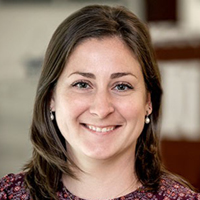 Aimee Milliken, PhD, RN, HEC-C
Aimee Milliken, PhD, RN, HEC-C
Aimee Milliken, PhD, RN, HEC-C, is an associate professor at the Connell School of Nursing. She practiced as a critical care nurse for over a decade and spent five years as a clinical ethicist, including serving as the executive director of a high-volume ethics service at a large academic medical center in Boston, Massachusetts. Dr. Milliken has taught, published, and presented on the topics of nursing ethics and clinical ethics.
Moderator
Robert D. Truog is the Frances Glessner Lee professor of Medical Ethics, Anaesthesiology & Pediatrics, and director of Harvard Medical School's Center for Bioethics. He oversees the Center's many activities, student programs, required courses, workshops, seminars, and public forums. Dr. Truog practices pediatric intensive care medicine at Boston Children's Hospital, where he has served for more than 30 years.
Christine Through the Years
Accommodation Requests
Harvard University welcomes individuals with disabilities to participate in its programs and activities. If you would like to request accommodations or have questions about the physical access provided, please email us in advance of your participation or visit. Requests for Sign Language interpreters and/or Communication Access Realtime Translation (CART) providers should be made at least two (2) weeks in advance, if possible. Please note that the university will make every effort to secure services, but that services are subject to availability.
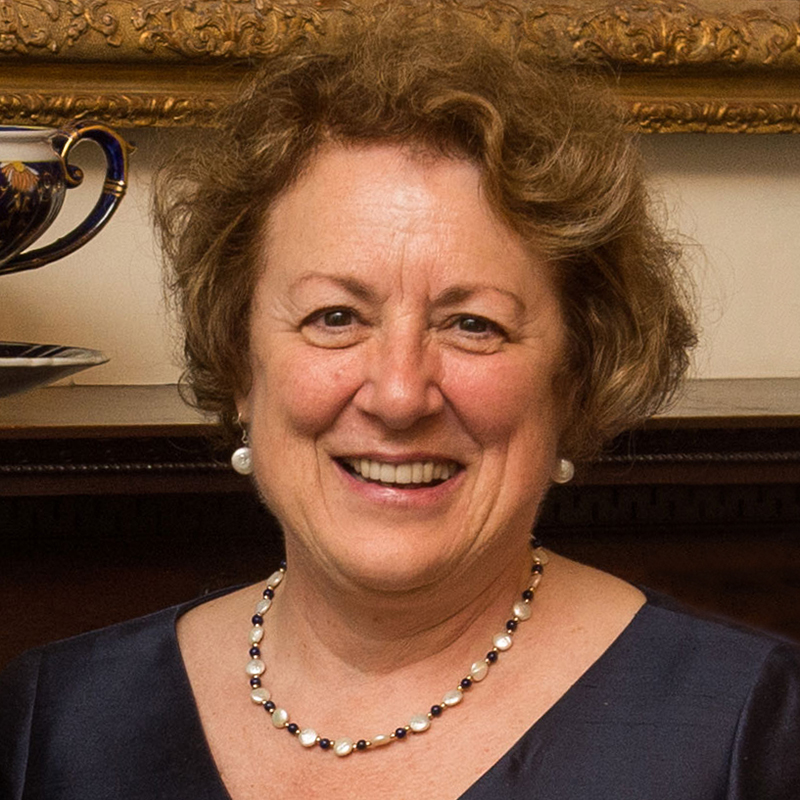
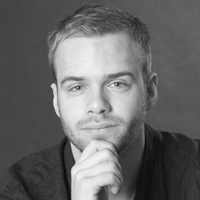 Sebastian Porsdam Mann, PhD
Sebastian Porsdam Mann, PhD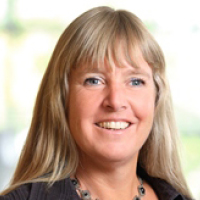 Yvonne Donders, PhD
Yvonne Donders, PhD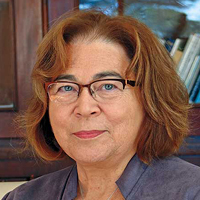 Mildred Solomon, EdD
Mildred Solomon, EdD Jonathan Marron, MD, MPH
Jonathan Marron, MD, MPH Robert D. Truog, MD, MA
Robert D. Truog, MD, MA